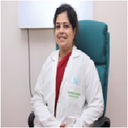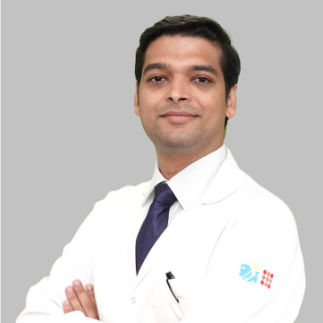Spina Bifida Overview and Treatment Options
Discover spina bifida, a birth defect affecting the spine. Learn about its types, symptoms, causes, and available treatment options to improve quality of life.


Introduction
Spina bifida is a birth defect that affects the spine and spinal cord, occurring when the neural tube (which later forms the brain and spinal cord) doesn’t close properly during early pregnancy. This condition can lead to physical and neurological challenges, but with the right care and treatment, individuals with spina bifida can lead fulfilling lives.
In this article, we’ll discuss what spina bifida is, its types, symptoms, causes, and available treatment options. We’ll also share some helpful lifestyle tips for managing the condition.
What is Spina Bifida?
Spina bifida is a congenital disability that affects the spine and spinal cord. It develops in the first month of pregnancy when the neural tube fails to close completely. Depending on the severity, it can cause mild to severe disabilities, including mobility issues, bladder and bowel problems, and learning difficulties.
Consult a Paediatric Neurosurgeon for the best advice
Types of Spina Bifida
There are three main types of spina bifida, each varying in severity:
1. Spina Bifida Occulta (Hidden Spina Bifida)
- The mildest form, where the spinal cord and nerves are usually normal.
- A small gap in the spine may go unnoticed, often causing no symptoms.
- Some people may have a dimple, birthmark, or patch of hair on the skin over the affected area.
2. Meningocele
- A sac of fluid pushes through an opening in the spine, but the spinal cord remains intact.
- This type is less severe but may still require surgery to remove the sac.
3. Myelomeningocele (Open Spina Bifida)
- The most severe form, where the spinal canal remains open along several vertebrae.
- The spinal cord and nerves protrude through the opening, forming a sac that may be covered by skin or exposed.
- This type often leads to paralysis, bladder/bowel issues, and hydrocephalus (fluid buildup in the brain).
Symptoms of Spina Bifida
Symptoms vary depending on the type and severity of the condition:
- Mild cases (Occulta): May have no symptoms or only a small dimple/hair patch on the back.
Moderate to severe cases (Meningocele/Myelomeningocele):
- Weakness or paralysis in the legs
- Loss of bladder or bowel control
- Hydrocephalus (excess fluid in the brain)
- Learning difficulties
- Scoliosis (curved spine)
- Skin sores due to lack of sensation
What Causes Spina Bifida?
The exact cause is unknown, but several factors may increase the risk:
- Folic Acid Deficiency: Low levels of folic acid (vitamin B9) before and during pregnancy play a major role.
- Genetics: A family history of neural tube defects increases risk.
- Diabetes & Obesity: Poorly controlled diabetes or obesity in the mother may contribute.
- Certain Medications: Some anti-seizure drugs can interfere with folic acid absorption.
Diagnosis of Spina Bifida
Spina bifida can often be detected before birth through:
- Prenatal Ultrasound – Can show signs of spinal abnormalities.
- Maternal Blood Test (AFP Test) – High levels of alpha-fetoprotein may indicate a neural tube defect.
- Amniocentesis – If needed, a sample of amniotic fluid is tested for abnormalities.
After birth, doctors may use MRI or CT scans to assess the severity.
Get Your Health Assessed
Treatment Options for Spina Bifida
While there is no cure, treatment focuses on managing symptoms and improving quality of life.
1. Surgery
- Prenatal Surgery (Fetal Surgery): In some cases, surgery can be performed before birth to repair the spinal defect.
- Postnatal Surgery: After birth, surgery may be done to close the spinal opening and prevent infections.
2. Managing Complications
- Hydrocephalus Treatment: A shunt may be placed to drain excess brain fluid.
- Physical Therapy: Helps improve mobility and muscle strength.
- Orthopaedic Care: Braces, crutches, or wheelchairs may be needed for movement.
- Bladder & Bowel Management: Catheters, medications, or surgery may help with incontinence.
3. Medications
- Antibiotics to prevent infections (especially in cases of open spina bifida).
- Pain management medications if needed.
Lifestyle & Home Care Tips
Living with spina bifida requires ongoing care, but these tips can help:
- Stay Active: Physical therapy and gentle exercises can improve strength and flexibility.
- Healthy Diet: A balanced diet helps prevent obesity and supports overall health.
- Skin Care: Check for pressure sores regularly, especially if mobility is limited.
- Regular Check-ups: Routine visits to neurologists, urologists, and orthopaedic specialists are essential.
Prevention of Spina Bifida
While not all cases can be prevented, taking folic acid before and during pregnancy significantly reduces the risk.
- Women of childbearing age should take 400 mcg of folic acid daily.
- Pregnant women may need higher doses (4 mg/day) if they have a history of neural tube defects.
- Eat folate-rich foods like leafy greens, beans, and fortified cereals.
When to See a Doctor?
If you or your child shows signs of spina bifida, consult a doctor immediately. Early intervention improves outcomes.
Final Thoughts
Spina bifida is a lifelong condition, but with proper medical care, support, and lifestyle adjustments, individuals can lead active and fulfilling lives. If you have any concerns, don’t hesitate to reach out to a healthcare provider for guidance.
Consult a Paediatric Neurosurgeon for the best advice
Consult a Paediatric Neurosurgeon for the best advice

Dr. Anagha Bhagwat
Paediatric Neurologist
15 Years • MBBS, DNB, FPN
Indore
Apollo Hospitals Vijay Nagar, Indore

Dr. Joydeep Biswas
Neurologist
15 Years • MBBS, DNB General Medicine, DNB Neurology
Barasat
Diab-Eat-Ease, Barasat

Dr. Sarthak Mehta
Neurologist
6 Years • MBBS , MS Mch ( Neuro )
Bengaluru
Apollo Clinic, JP nagar, Bengaluru

Dr Sharvari Kulkarni
Paediatrician
5 Years • MBBS, MD PEDIATRICS
Pune
Apollo Clinic, Viman Nagar, Pune

Dr Nishant Gopaal
Paediatric Neurologist
3 Years • MD (Paediatrics), Post Doctoral Fellowship (Paediatric Neurology)
Lucknow
Apollomedics Super Speciality Hospital, Lucknow
Consult a Paediatric Neurosurgeon for the best advice

Dr. Anagha Bhagwat
Paediatric Neurologist
15 Years • MBBS, DNB, FPN
Indore
Apollo Hospitals Vijay Nagar, Indore

Dr. Joydeep Biswas
Neurologist
15 Years • MBBS, DNB General Medicine, DNB Neurology
Barasat
Diab-Eat-Ease, Barasat

Dr. Sarthak Mehta
Neurologist
6 Years • MBBS , MS Mch ( Neuro )
Bengaluru
Apollo Clinic, JP nagar, Bengaluru

Dr Sharvari Kulkarni
Paediatrician
5 Years • MBBS, MD PEDIATRICS
Pune
Apollo Clinic, Viman Nagar, Pune

Dr Nishant Gopaal
Paediatric Neurologist
3 Years • MD (Paediatrics), Post Doctoral Fellowship (Paediatric Neurology)
Lucknow
Apollomedics Super Speciality Hospital, Lucknow
